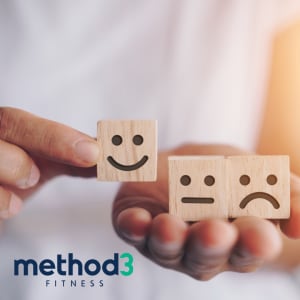
Everyone has unpleasant emotions from time to time, such as anger, jealousy, fear, or anxiety. It's human nature. But a key to living a satisfying life and getting along with others is to be able to manage your emotions and behavior even in times of stress. One way to do this is with self-regulation. What is self-regulation? Self-regulation is the act of controlling your behaviors, thoughts, emotions, choices, and impulses. Self-regulation skills help you keep negative emotions in check and think before you react. In essence, it's a type of self-control or emotion regulation. Negative emotions are disruptive. They can interfere with your happiness, productivity, and relationships. While you can't always avoid negative feelings, you can change the way you react to them. Self-regulation draws upon: self-discipline flexibility in adapting to different situations persistence in getting through tough times strong personal values that guide your reactions and decisions. People with good self-regulation skills can still feel sad, angry, or stressed during difficult times. But they have learned to manage these challenges better. Why is self-regulation important? When confronted with distressing or challenging situations, people with a strong ability to self-regulate can maintain a measured outlook and respond with thoughtfulness and maturity. People with good emotion regulation skills tend to have healthier behaviors and better overall health. Some of the healthy behaviors connected with self-regulation include being physically active, having a good diet, and not smoking. On the other hand, people who are emotionally dysregulated experience high levels of stress and anxiety that can lead to poor physical and mental health. Some of the conditions associated with emotional dysregulation include being more sedentary, being overweight, and having high blood pressure and other stress-related problems. Having good self-regulation yourself can be especially valuable for parents teaching these skills to their children, from toddlers to teenagers. Techniques for improving self-regulation: Improving your emotion regulation skills can help you be better prepared when you encounter obstacles — big or small — throughout your life. Self-regulation starts with exploring and understanding your behaviors, emotional reactions, and impulses. For example, do you notice that you are triggered by certain environments or people? Are you responding to an experience in your past rather than the current situation? You then consider the consequences of possible responses, and consciously choose those that can lead to a more positive outcome. Mindfulness and cognitive behavior strategies are two ways to do this. Mindfulness and self-regulation: Mindfulness plays a strong role in self-regulation. It involves focusing one's awareness on the breath and then expanding awareness in an open way to passing thoughts, and taking the time to calm them by focusing on the present moment without judgement. Practicing mindfulness helps you appreciate the simple pleasures of life. Then, when you face stressful situations, you can tap into those feelings of peace and satisfaction to help you self-regulate and keep your emotions under your control. Practicing mindfulness can help you build the capacity to deal with problems. Cognitive behavioral strategies for self-regulation: Cognitive behavioral strategies help one reduce internal drivers of emotional dysregulation by replacing unhelpful thoughts and behaviors with positive ones. These techniques are often done with the help of a therapist, but they can be practiced at home as well. Cognitive behavioral techniques include identifying and labeling your emotions, understanding the reasons for your emotions that may include distorted thoughts or catastrophizing, and learning to let painful feelings go. You might also consider any regrettable responses you have had to difficult and stressful situations in the past, and replace those behaviors with positive alternatives. Practical tips for daily self-regulation: The ability to self-regulate can be learned and improved. One tip to help you practice improving your self-regulation skills involves using the four-step Stop-Breathe-Reflect-Choose approach: Try to relax by taking deep slow breaths, counting to 10, or taking a walk. Don't react until you feel like you have your emotions under control. Think about responding instead of simply reacting. Self-regulation isn’t about ignoring your emotions—it’s about understanding them and choosing how to respond in a way that benefits your well-being. By practicing mindfulness, using cognitive behavioral strategies, and applying simple techniques like the Stop-Breathe-Reflect-Choose approach, you can strengthen your ability to navigate life’s challenges with greater ease. Over time, these skills will help you feel more in control, resilient, and at peace with whatever comes your way. Ready to take the first step? Start small, stay consistent, and watch your self-regulation grow! Live Stronger For Today, Method3 Fitness is conveniently located in San Jose. Our team of personal fitness trainers serve clients in Los Gatos, Campbell, Willow Glen and other surrounding Bay Area cities. If you found this blog useful, be sure to let us know and SHARE it on your favorite channel! The Method3 Fitness blog is updated weekly by our San Jose personal trainers. All content is designed to improve the way you move, eat, and think so you can achieve your goals and live stronger for today. Check back here each week and LIKE our Fan Page, to stay up to date on the latest tips, strategies and methods to get active, gain energy and get healthy again!
Coach Sweat
